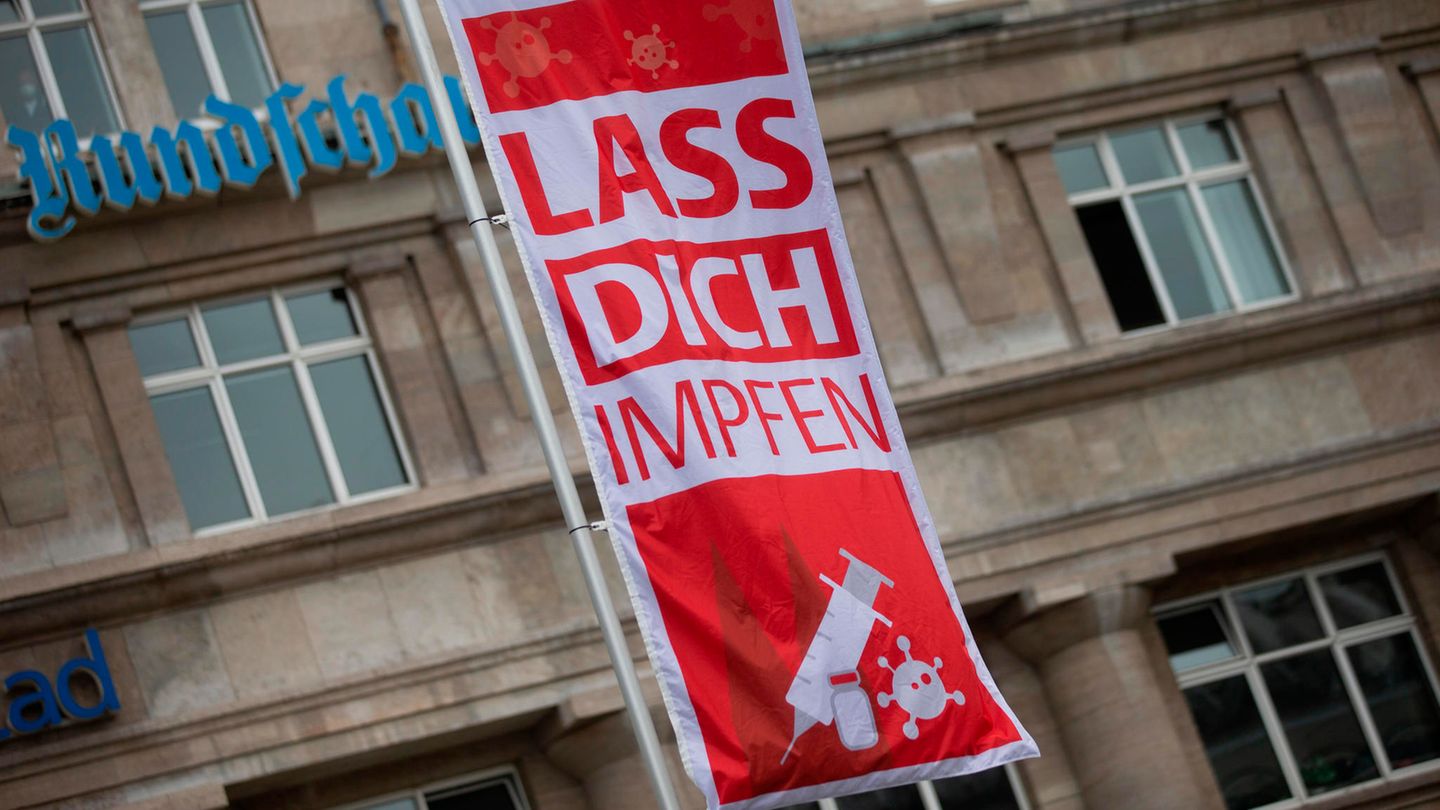Political Berlin is hotly debating: How can the vaccination rate in the population be increased? By pressure on the unvaccinated? What the Robert Koch Institute recommends for a successful vaccination campaign.
The more people are vaccinated against the coronavirus, the better we get through the pandemic – this is also clear to many of the politicians who are now railing for or against the move by Chancellery Minister Helge Braun (CDU), according to which there will be restrictions in the near future Unvaccinated could give.
The big questions are: How do you get as many people as possible to get vaccinated? By conviction? With more or less gentle pressure? Or even through a “compulsory vaccination through the back door”?
RKI relies on education instead of coercion
The Robert Koch Institute (RKI), which is responsible for combating epidemics, has also given thought to the question of a successful vaccination campaign – and a few days before Helge Braun’s initiative, “Recommendations for action for prevention and preparation” with a view to a possible fourth wave of pandemics in the Issued autumn and winter.
When you look at the paper, it becomes clear: For the RKI, too, a successful vaccination campaign is a central component in the fight against the coronavirus. The experts from Berlin’s Wedding do not speak of a compulsory vaccination – not even through the much-cited back door.
Rather, “the highest possible vaccination quota should be sought in all areas and population groups,” as the paper says; namely by the fact that all people who want to be immunized are actually vaccinated, i.e. through offers instead of coercion.
- According to the RKI, “outreach vaccination offers” should be practiced in order to counter “socio-economic inequalities”. Vaccination teams should therefore come where many people live or work in confined spaces, for example in large housing estates or factories.
- In parallel to the ongoing vaccination campaign, the decision-makers should prepare for so-called focus vaccinations so that they can react quickly to newly emerging hotspots. This is currently the case, for example, in the flood-affected areas in North Rhine-Westphalia and Rhineland-Palatinate.
- You should also be prepared for possible “booster vaccinations”. In the event that two vaccine doses are not sufficient, the RKI recommends ordering and stockpiling vaccines for a possible further vaccination, especially for certain vulnerable population groups.
The RKI does not rely on (indirect) compulsion, but on vaccination offers and vaccination information. Here, it advises extensive communication, in which it should be made clear that the risk of overloading the health system still exists, so the pandemic is by no means over. “The population should be informed at an early stage that the behavior of each individual has an influence on the extent and the consequences of the infections in autumn and winter,” says the recommendations for action. In addition, according to the RKI, it should be pointed out in detail that a full vaccination against the Delta variant has a “significantly better protective effect”. “This counteracts a decrease in willingness to vaccinate.”
Herd immunity to coronavirus “unlikely”
According to the RKI, the vaccination campaign should continue to be accompanied by extensive monitoring: How high is the willingness to vaccinate in different population groups? What vaccination rates were achieved? How is the outbreak developing? Do certain vaccines weaken and do they need to be supplemented? All these questions need to be kept in mind for a successful vaccination campaign.
In principle, however, the RKI considers a so-called herd immunity or even a complete elimination of the Sars-CoV-2 pathogen to be “unlikely”. The institute gave detailed reasons for this assessment at the beginning of July. However, this is also an assessment of the RKI, only vaccinations can reduce the effects of the pandemic: “With further vaccinations and infections, it is to be expected that the basic immunity in the population will become increasingly stable in the following years and that the seasonal waves will therefore become smaller.”
,, DPA news agency




